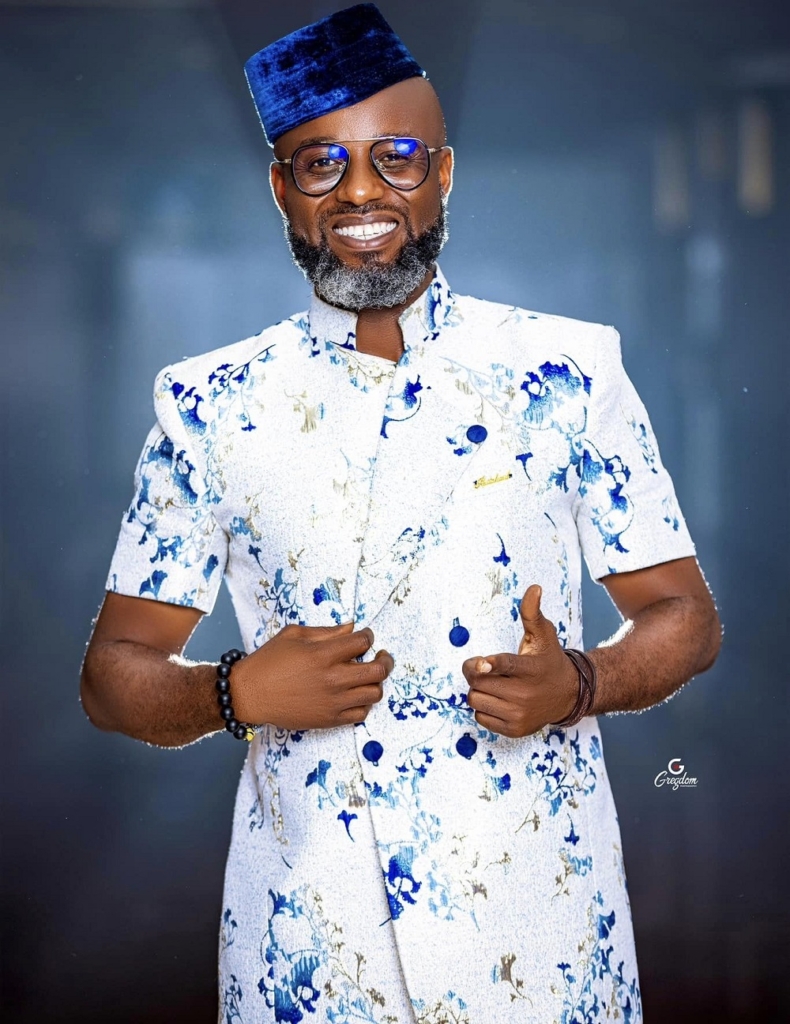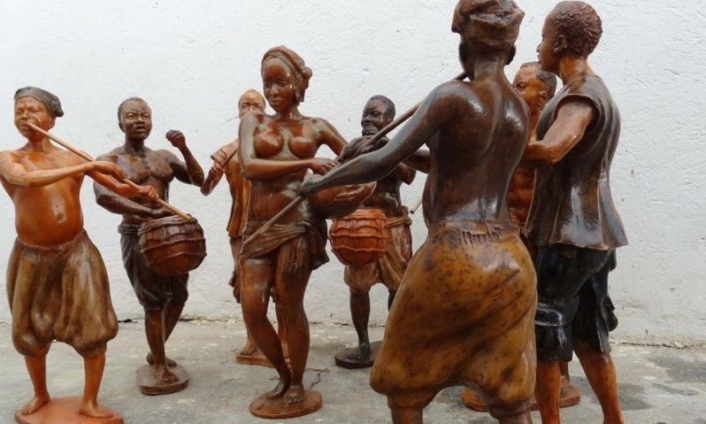Ghana stands at a pivotal moment in its creative evolution, poised to rival industry giants like Nigeria and South Africa by harnessing its unique cultural essence and fostering a dynamic creative ecosystem.
While its counterparts have long dominated the African creative landscape, Ghana's rich tapestry of traditions, artistry, and innovation holds the key to unlocking immense value and global recognition.
At the heart of this transformation lies the celebration and preservation of Ghana's cultural authenticity. From the rhythmic beats of traditional music to the vibrant hues of Kente cloth and the savory flavors of local cuisine, Ghana's cultural heritage offers a wellspring of inspiration for creatives across disciplines. Embracing and showcasing these unique elements not only distinguishes Ghana on the global stage but also resonates with audiences seeking authenticity and diversity in creative expression.
To propel Ghana's creative industry to new heights, strategic investments in infrastructure and capacity building are imperative. By establishing more art schools, creative incubators, and training programs, Ghana can cultivate a talented pool of creatives equipped with the skills and resources needed to compete internationally. Moreover, increased access to funding and resources can empower artists and entrepreneurs to realize their visions and bring Ghanaian creativity to the forefront of the global conversation.
Collaboration emerges as a powerful catalyst for innovation and growth within Ghana's creative ecosystem. By fostering partnerships among artists, designers, filmmakers, musicians, and other creatives, Ghana can cultivate a culture of cross-disciplinary exchange that fuels creativity and drives collective progress. Engaging with international collaborators and participating in global events not only amplifies exposure for Ghanaian creatives but also facilitates knowledge sharing and networking opportunities that transcend borders.
In an increasingly digital age, the integration of technology and digital platforms is essential for expanding the reach and impact of Ghana's creative output. Leveraging digital tools for marketing, distribution, and audience engagement enables Ghanaian creatives to transcend geographical boundaries and connect with global audiences. By embracing digital innovation and harnessing the power of social media and streaming platforms, Ghana can amplify the visibility of its creative offerings and position itself as a hub of cultural dynamism and artistic excellence.
Some Global Indicators
At a global level, the cultural and creative industries are estimated to generate US$2.25 trillion annually, contributing to 3% of the total global GDP and Africa is one of the most promising markets in that space. According to the International Federation of the Phonographic Industry, with 34.7% growth, the Sub-Saharan African (SSA) region witnessed the fastest growth in the recorded music market last year. Streaming in Africa is also booming: with an annual growth rate of 8.89%. At this rate, the projected market volume by 2027 is US$524.10m. While our growing population is a definite factor of these numbers, I believe that the X factor of our cultural popularity can be found elsewhere.
The potential of the economic power of Africa’s diaspora for Africa’s creative economy
The African Union estimates the size of the African diaspora to be 170 million (2022). Our diaspora plays a key role in promoting Africa to the world, outside of the boardrooms and conferences that you and I are accustomed to attend. A significant contribution has been demonstrated by our creative sector to the Year of Return initiative which according to the Minister of Tourism, generated a $1.9 billion boost in Ghana’s economy and welcomed 200,000 visitors in the country in December 2019. Ghana creative sector has all what it takes to bolster the needed growth when government and stakeholders, together, work towards elevating the sector through funding, programs and projects.
Our rival industry giants (Nigeria and South Africa) have become benchmarks in scoring the creative industry growth in the African region, by global opinion leaders. The Nigerian music industry is considered to be one of the most vibrant and influential in Africa, but it is difficult to determine definitively whether it is the strongest or best. Ghana and South Africa are also known for their vibrant music industries, and each country has its unique styles, genres, and artists. Nigeria is known for its unique Afrobeat genre, which has influenced music around the world. Nigerian musicians like Fela Kuti, King Sunny Ade, Burna Boy and Davido have gained international recognition for their contributions to the music industry. The country also has a thriving music scene that includes various styles such as highlife, juju, and afro-pop. South Africa is known for its vibrant and diverse music scene that includes various genres such as jazz, kwaito, hip-hop, and house music. The country has produced globally recognized artists such as Miriam Makeba, Hugh Masekela, Ladysmith Black Mambazo, Black Coffee and many others.
On the other hand, Ghana has a rich and diverse musical heritage that includes highlife, hiplife, and gospel music, among others. The country has produced globally renowned artists such as Osibisa, E.T. Mensah, Sarkodie, Stonebwoy, Shatta Wale, King Promise, etc. in areas theatre arts, radio and television, fashion and modeling, film and animation, kente weaving and basketry, there is no way any other these two country could surmount Ghana in any aspect, when we deliberately empower the sector to elevate the creative enterprises and individuals.
We have many stories to tell on Ghana’s past, present and future: with over $90bn remittances estimated as flowing in each year, our African Diaspora has the economic ability to ensure that these stories are produced and distributed at the largest scale.Over the years there's been growing demand from the creative class to be offered their rightful place on the economic growth ladder. This requires the state to begin to invest seriously in our creative industry. There's need to design programs to support the growth of the film, television, theatre, music, visual Arts and crafts to drive job creation and economic growth. The stateneeds to enhance the educational curriculum to elevate and allow students to appreciate the relevance of arts and culture in life and national development. Recognized creative bodies like the Ghana Association of Writers, (GAW) Musicians of Ghana Association (MUSIGHA), GHAMRO, National Film Authority (NFA), National Theatre, Ghana Union of Visual Arts (GUVA), Women in Film and Television Ghana among others must necessarily be resourced to achieve this goal.
Regulation to protect the copyright of artistes and ensure receipt of value for their works by enforcing the payment of user fees under the Copyright Regulations, 2010 (L.I. 1962) ought to be strengthened. A legal aid system for creatives to help fight creative/intellectual theft and plagiarism by others should be set up given the creative arts law and implementation began for further promotion and development of the industry.
In conclusion, Ghana's ascent in the global creative arena hinges on a strategic blend of cultural authenticity, investment in talent development, collaborative synergy, and digital innovation. By embracing its rich cultural heritage, nurturing local talent, fostering collaboration, and leveraging digital platforms, Ghana can carve out a distinct identity and establish its place among the creative powerhouses of the world. The time is ripe for Ghana to harness its creative spirit, ignite a cultural renaissance, and pave the way for a vibrant and thriving creative industry that resonates on a global scale.

Latest Stories
-
Mahama swears in 7 new Supreme Court Justices
6 seconds -
Clara Elisabeth Kukua Savage
2 minutes -
‘Power to the students’ – NYA CEO Osman Ayariga condemns UPSA’s dress code enforcement
4 minutes -
Ashanti Region: Impostor in police uniform arrested
24 minutes -
Ghana fully up to date on 2025 Eurobond debt service obligations – Finance Minister
24 minutes -
Liverpool and Ronaldo lead tributes to Diogo Jota
30 minutes -
Bogoso‑Prestea Mine workers protest again to demand lease termination, call out gov’t silence
31 minutes -
Insurance companies that flout VAT on Non-Life premiums will be dealt with – GRA
37 minutes -
Damang Mine: 3 NPP MPs drag gov’t to court over ‘unconstitutional’ Abosso Goldfields lease deal
39 minutes -
Agradaa jailed 15 years
1 hour -
Indian Prime Minister Modi commits to stronger ties with Ghana
1 hour -
NSMQ 2025: Berekum Presby pulls off last-gasp comeback to stun Techiman, reaches zonal finals for first time in 7-years
2 hours -
Anglogold Ashanti Obuasi mine outlines a 5-year ‘Make Obuasi Great Again’ vision
2 hours -
Useless Column: I’m Suspecting My Wife
2 hours -
Amelley Djosu: Edem’s ‘Toto’, parliament and the politics of misunderstood art
2 hours

